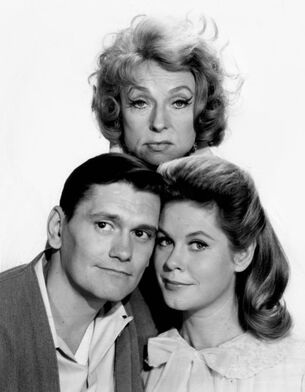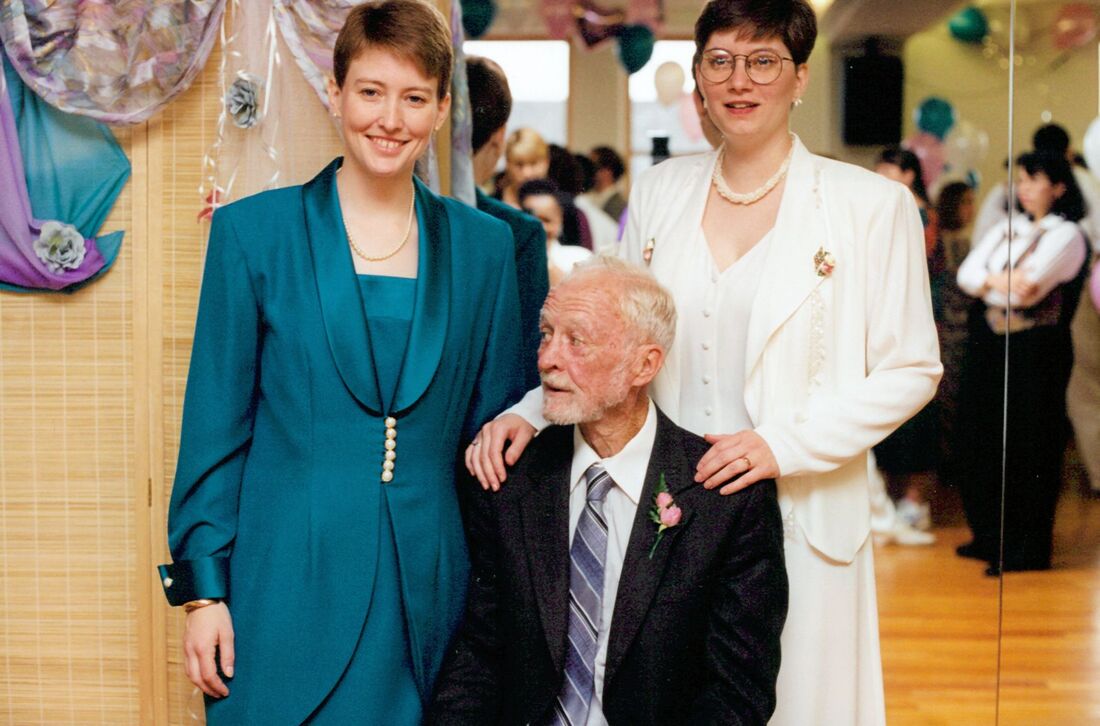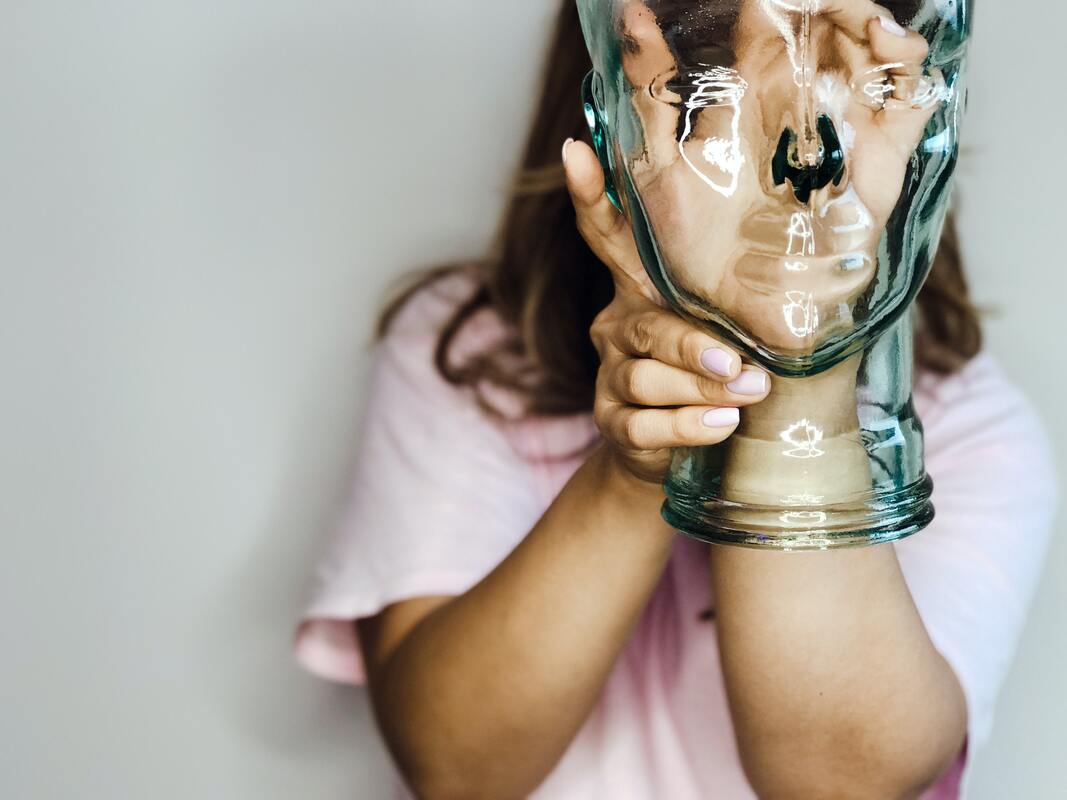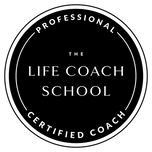|
Hi Honey, I’m Home! What? No dinner?
Sometimes my brain is a real asshole. I wrote this in my journal last night: “I was up at 6 am, worked all day, ran 3 miles after work, took a shower. I am not sure what Jenn [my wife] did all day. At 7 pm she suggested I could have a pouch of Indian food and she could have leftover pizza or leftover mac & cheese. Seriously? Instead of that, I made new food that I can eat. Aaand, now Jenn’s eating that.” It was like Darrin Stephens, the husband on Bewitched showed up to tell me it was 1966 and that I should be able to expect my wife to cater to me. Don’t I do enough around here? Some facts my brain omitted:
So why the Bewitched routine? It’s because I couldn’t access those bits of info while I was in the middle of feeling put upon. I could only see evidence for how I was right and Jenn was wrong. Did I start a fight? No (thank goodness, because it would have been a really dumb argument.) Did I sulk? Yeah, I sulked for awhile. But I’m really glad I took the time to make some notes in my journal, taking a beat to sort myself out before I launched into a martyr-fueled rant. To be sure, responsibility for a good marriage falls on both partners, but I’ve learned that I need to approach the “what I want” conversations with Jenn when I don’t have a bunch of weird Darrin Stephens crap that is all my own, coloring the conversation. That’s a gift of coaching. Because I coach, I’ve developed techniques to get to a level of clarity before I create a situation that is much harder to sort out. And I help my clients develop their own set of techniques to get clear on what they want and get themselves sorted out and then have those conversations with their spouse to get to a happier, more satisfying relationship. If you want to be happier in your marriage, sign up for a free one hour coaching session today. Don't be Darrin Stephens. It’s not too late to begin making it better. Vulnerability. From the Latin word "vulnus" meaning "to wound." I guess it makes sense from a martial perspective -- having your flank be vulnerable means that you are open to attack from that side. But today, largely with the help of Brene Brown, being vulnerable has a whole new, much more positive meaning. Interesting too that the word breaks down to vulner-ABILITY. Definitely accurate that making ourselves open to something that can wound us take work and practice. So it better be worth it, right?
I have been sharing that I live with Persistent Depressive Disorder. Also that I am sober. Plus other struggles. And how much I resist glib "Just do it" advice from other coaches that rings hollow or tone-deaf. This wasn't easy for me. Being vulnerable can be difficult because it requires us to open ourselves up to the possibility of rejection, criticism, or hurt. We may also be afraid of being judged or misunderstood. Additionally, vulnerability can make us feel exposed or insecure, which can be uncomfortable or even scary. Our past experiences can also make it hard to trust others and ourselves, which can make vulnerability seem like a risky proposition. It can be difficult to be truly honest with ourselves and others, and to share our innermost thoughts, feelings, and experiences. But being vulnerable can help our outlook by allowing us to build deeper connections with others and to be more open and authentic in our relationships. Additionally, being vulnerable can help us to better understand and accept our own emotions and experiences, which can lead to personal growth and self-awareness. Being open and honest with ourselves and others can also help us to build trust and to feel more supported and understood. My suggestion is that you explore being more vulnerable incrementally. Share just a little more than you normally would, and start with people for whom the risk feels the least dangerous. As you get practice with it and share more of yourself, you will show your brain that while you may feel open to being wounded, mostly people will choose to share more of themselves with you also. And that they may actually extend themselves and help with your old scars. Not sure who to start with? Consider a coaching call. My wife Jenn and I have been together since 1991. We've had our periods of relationship challenges over the years. Our decisions to stay together required a lot of intention from both of us. Either one of us could have called it quits and walked away. Neither of us was blameless in any of the challenges we've faced over the years.
I didn’t know then what I know now about relationships. There is not really very much info about our relationships out there even now. And I believe it really is different with two women in the mix. It turns out there were a few things that made it possible for us to weather the storm and that research shows helps couples make it through rough times. We communicated honestly, but weren’t brutal about it. We resisted the urge to get defensive and blame the other for our relationship issues. We forgave each other. We stated some clear boundaries. Frankly, we lucked into some skills that made it possible for us to mend the relationship and without them, I don’t think we would have made it. Not all relationships last, nor should they. There are red flags that can signal major issues. And there are ways to get clear on what you want and how to start moving in that direction. Start with honest yet compassionate communication, staying open to hearing her concerns, resisting blame, and setting clear boundaries. If you’d like to talk about what’s going on, I’m happy to help. Set up a free call by clicking this link. I recently ran this photo on Facebook with the caption "Do you wonder about the health of your lesbian relationship?" I was sharing info about key indicators that may indicate you need to change some things up to get the relationship you want. I was really surprised at the number of angry, sad, shocked and laughy faces the post got. I was trying to reach lesbians specifically, but that's not actually possible with Facebook. So, I figured that if the content didn't apply to someone, they'd just move on. That’s what I do when I see stuff on social media that’s not for me. At first I was shocked at the level of vitriol that came barreling back. Some people were truly moved to rant at and troll the sight of TWO OLDER WOMEN RIDING BICYCLES WHO MIGHT BE A COUPLE. Of the 200 reactions, 130 were negative. 25 comments, 18 hate-filled. One person said she reported my post because it promoted violence. Good grief.
But then I did the math. According to Facebook, 3,120 people saw the post. According to a 2021 Gallup poll, 5.6% of the population identifies as LGBTQ, which means that 2,945 of the people who saw it were straight. Which means that most of the straight people who saw it DIDN’T lose their marbles. And only 4% of the total number of people who saw it felt so incensed that they had to give it some sort of negative reaction. So while it was pretty icky to have such awful things written about TWO OLDER WOMEN RIDING BICYCLES WHO MIGHT BE A COUPLE, most of the straight people were cool about it. I call that progress. And if you want to take the quiz that can give you an indication of the health of your relationship, click this link. At the end of the quiz you'll be asked to share your email address. I promise nothing bad will happen. You'll get more info about what to look out for and ways you can work to strengthen your relationship. CLICK THIS LINK FOR THE SURVEY. Just checking in. There have been times when I absolutely craved real conversation about real feelings. Talking with someone who really heard me and saw me, who I felt like I could reveal even my less-than-attractive or less-than-socially-acceptable thoughts and feelings, and who wouldn't judge me, helped me turn some notable corners in my life.
I hope you have that. It can make a world of difference to be able to show up just as you are, no hiding, no apology. |
Archives
January 2024
|






 RSS Feed
RSS Feed
